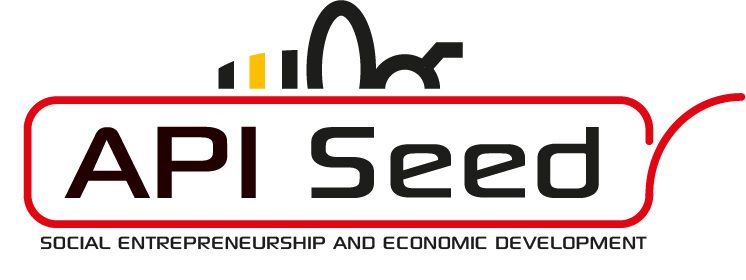APISEED activities
APISEED’s actions to create a supportive environment for employment are based on two pillars: the Social and Solidarity Economy (SSE) and the ecological sustainable development.
The opportunities of the SSE framework :
The SSE tools offer innovative solutions to tackle long-term unemployment and integrate people in precarious and exclusion situation. SSE operators activities – at the forefront of the social enterprise – aim to several objectives considered as incompatible in an “all” economic or social logic.
A social enterprise fulfills its social mission by conducting profitable and competitive activities generating incomes and consequently, financial viability.
The concept of « integration by economic activity » implements a structural approach of jobs creation to the field of professional and economic integration. Three principles guide this structural approach to integration :
1 / Build adapted pathways to sustainable or transitional jobs.
“Integration workers” are placed in a three-part work: employed, trained and supported by “technical supervisors” all along the progress.
Enrolled in professional trajectories, an opportunity is given to people to acquire added-value skills and use them in a working situation.
Value-added logic applying to products also applies to skills: only sought-after ones enable durable integration into the labor market. That is the purpose of the “integration jobs”: in-between job category – neither private, public or subsidized – but financially sustainable thanks to the income-generating activities of the social enterprise.
These integration jobs allow participants to get close to a sustainable or transitional job.
2 / Stimulate a territorial dynamic.
The general interest mission of social enterprises is to facilitate cooperations with local actors. Social enterprises have to be recognized and part of a territorial ecosystem gathering private companies, NGOs, public actors….
Partnerships in the field of related-activities must be concluded in order to contribute to the social and economic integration of people.
3 / Make the bridge with the real economy.
To play their role of “transitional” employers, social enterprises serve as an interface between integration jobs and private companies. To make sustainable employment, social enterprises have to be known and in close relations with private companies.
The “technical supervisors” – which support and follow-up the integration trajectory – are best placed to complete this mission. They are acquainted with integration workers’ capacities and skills, the first step in the job matching and recruitment by a company.
